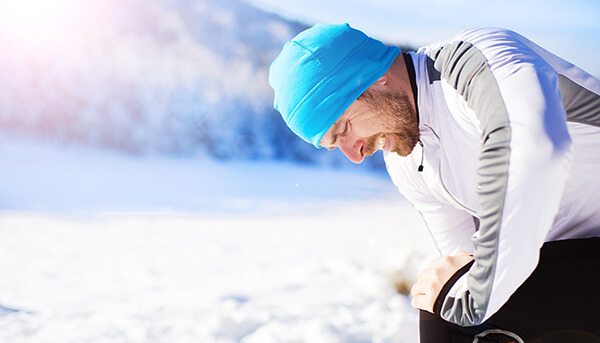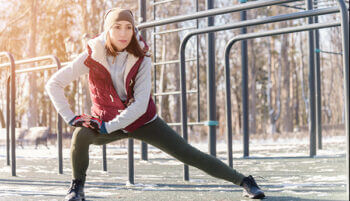Reviewed by Alvin J. Detterline, M.D. – Board-Certified Orthopaedic Surgeon and Sports Medicine Specialist
 Understanding Winter’s Influence on Pain and Injury
Understanding Winter’s Influence on Pain and Injury
Winter sports enthusiasts often face a unique set of challenges when it comes to injuries. Not only do they have to contend with the usual risks associated with physical activity, but they also have to navigate the additional hazards posed by cold weather. It is not uncommon for athletes to experience increased pain and discomfort in the winter months, and understanding why this happens is crucial for injury prevention and management.
Winter sports injuries encompass a wide range of conditions, including sprains, strains, fractures, and dislocations. The cold weather itself does not directly cause these injuries, but it can exacerbate the symptoms and make the pain more intense.
In this article, we will explore the effects of cold weather on sports injuries and shed light on why injuries may hurt worse during the winter.
Why Do Sports Injuries Hurt More in the Winter?
- Reduced blood flow: Cold weather causes our blood vessels to constrict, reducing blood flow to the injured area. This decreased circulation can slow down the healing process and prolong the recovery time. Additionally, the lack of ideal blood flow can result in more prolonged inflammation and swelling, which can further contribute to the pain experienced during winter injuries.
- Stiffened muscles and joints: Cold temperatures can cause our muscles, tendons, and ligaments to become stiffer and less flexible. This reduced flexibility can make movements more challenging and put additional strain on injured areas. As a result, the pain experienced from an injury can be heightened during the winter months.
- Increased sensitivity to pain: One of the main reasons injuries hurt worse in the winter is the effect of cold temperatures on our nerves. When the temperature drops, our nerve endings become more sensitive, making us more susceptible to pain. This increased sensitivity can amplify the pain signals sent to our brain, making injuries feel more intense than they would in warmer weather.
- Delayed healing: Cold weather can slow down the healing process. The body’s natural healing mechanisms may be compromised due to reduced blood flow and decreased metabolic activity, leading to longer recovery times and prolonged pain.
Winter Sports Injury Prevention and Management

To mitigate the effects of cold weather on sports injuries, athletes should take certain precautions:
- Warm-up thoroughly: Prior to engaging in any winter sports activity, it is crucial to warm up adequately. This helps increase blood flow, loosen muscles, and improve joint flexibility, reducing the risk of injury and minimizing pain.
- Dress appropriately: Wearing proper clothing and protective gear is essential for preventing injuries and minimizing the impact of cold weather. Layering up, wearing moisture-wicking fabrics, and using appropriate footwear can help maintain body temperature and reduce the risk of injury.
- Stay hydrated: Dehydration can occur even in cold weather, which can negatively impact muscle function and increase the risk of injury. It is important to drink plenty of fluids before, during, and after physical activity to stay properly hydrated.
- Seek medical attention: If an injury occurs during winter sports, it is crucial to seek medical attention promptly. A healthcare professional can provide an accurate diagnosis, recommend appropriate treatment, and offer guidance on managing pain and promoting healing.
In conclusion, cold weather can have a significant impact on sports injuries, making pain worse and prolonging recovery times. Understanding the effects of cold weather on the body and taking necessary precautions can help athletes prevent injuries and manage pain effectively. By staying warm, properly preparing the body, and seeking medical attention when needed, winter sports enthusiasts can enjoy their activities while minimizing the risks associated with cold weather.


